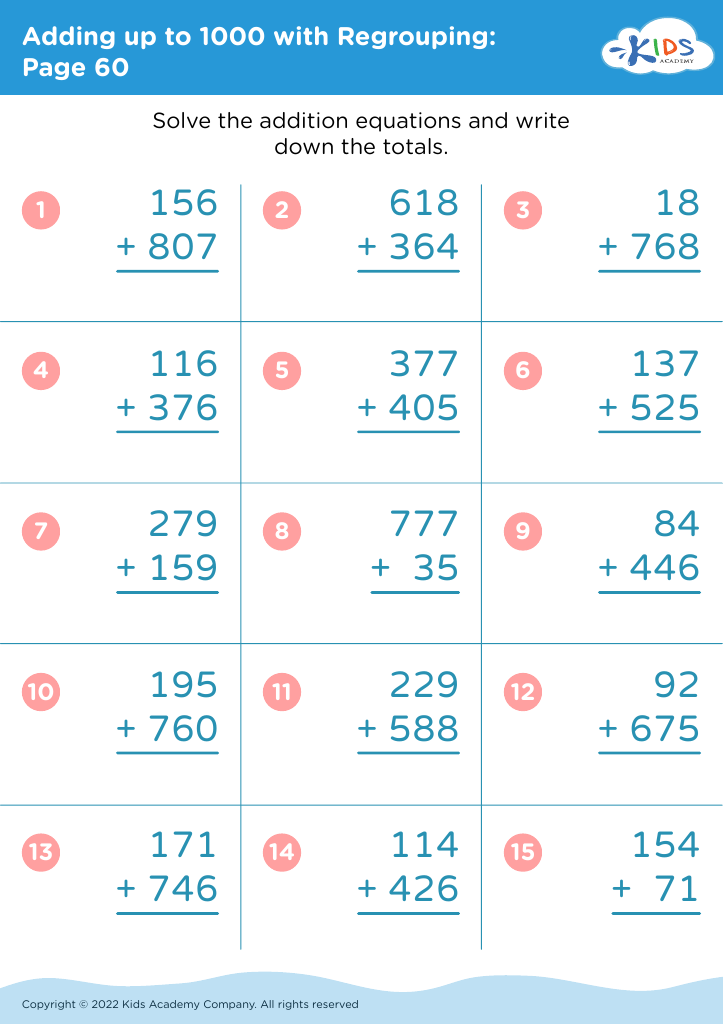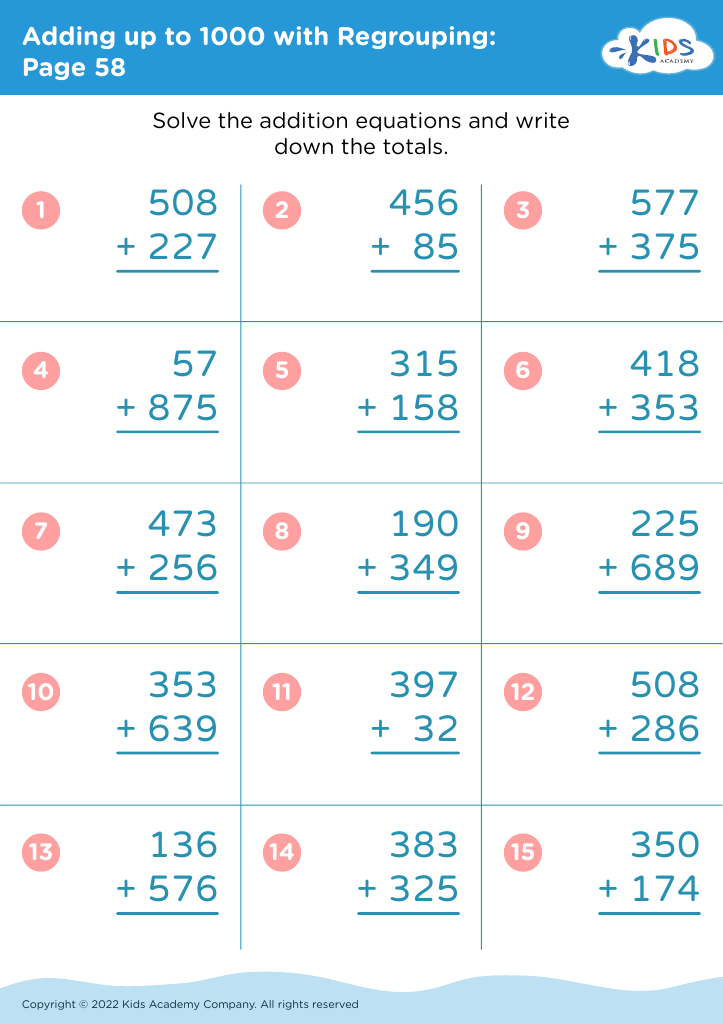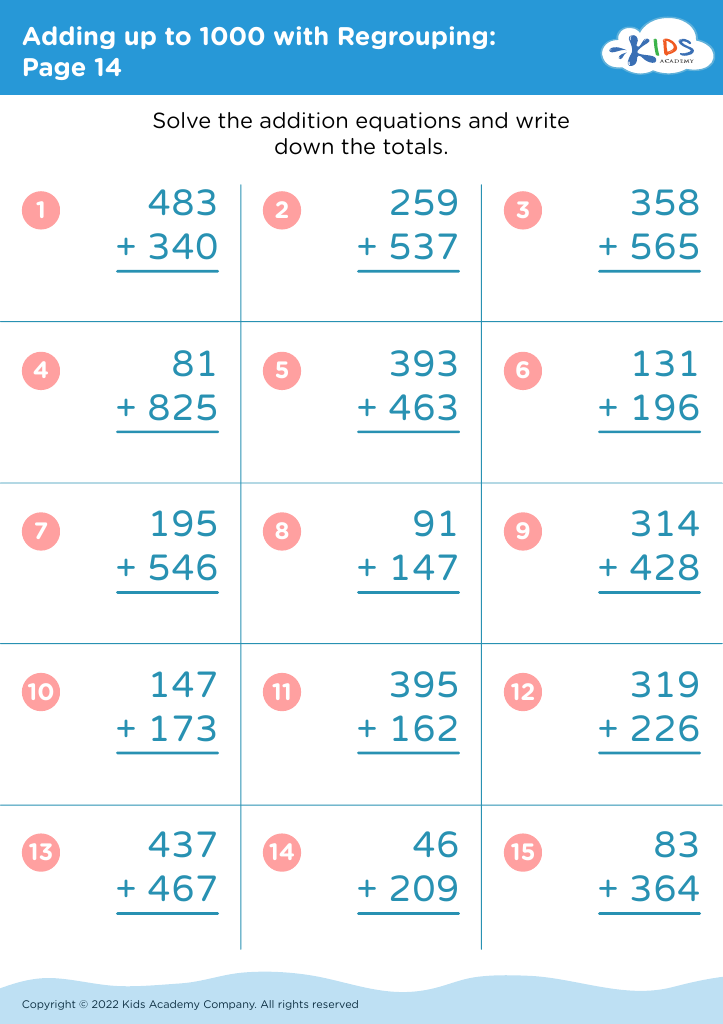Color Identification Adding up to 1000 with Regrouping Worksheets for Ages 3-8
5 filtered results
-
From - To
Explore our engaging "Color Identification Adding up to 1000 with Regrouping Worksheets," specifically designed for children ages 3 to 8. These interactive worksheets teach young learners essential math skills, including addition up to 1000 and regrouping, while incorporating vibrant colors to enhance visual recognition. As kids practice addition through colorful illustrations, they'll develop crucial cognitive skills alongside their math abilities. Perfect for home or classroom use, these worksheets help children build confidence in their math skills while reinforcing color identification in a fun and dynamic way. Start your child's learning journey today with these educational resources!
Color identification and the skill of adding up to 1000 with regrouping are crucial developmental milestones for children aged 3-8. Firstly, color identification enhances cognitive skills and aids in language development. Recognizing colors helps children describe their surroundings, fostering communication skills and promoting creativity through art and play. It’s an essential foundation that supports later academic learning.
On the other hand, mastering addition with regrouping introduces children to more complex mathematical concepts. By learning how to add larger numbers, they build critical thinking and problem-solving skills required for higher-level math. Regrouping teaches children to work with numbers in more sophisticated ways, enabling them to grasp place value, which forms the backbone of all arithmetic operations. This mathematical understanding is essential not just academically, but also in real-life situations.
Together, these skills lay the groundwork for children's academic success and help foster positive self-esteem as they achieve mastery. For parents and teachers, supporting children in these areas nurtures their growth and love for learning, making it easier for them to tackle future challenges, both in and out of the classroom. Investing time in these foundational skills ultimately sets children up for lifelong success.















